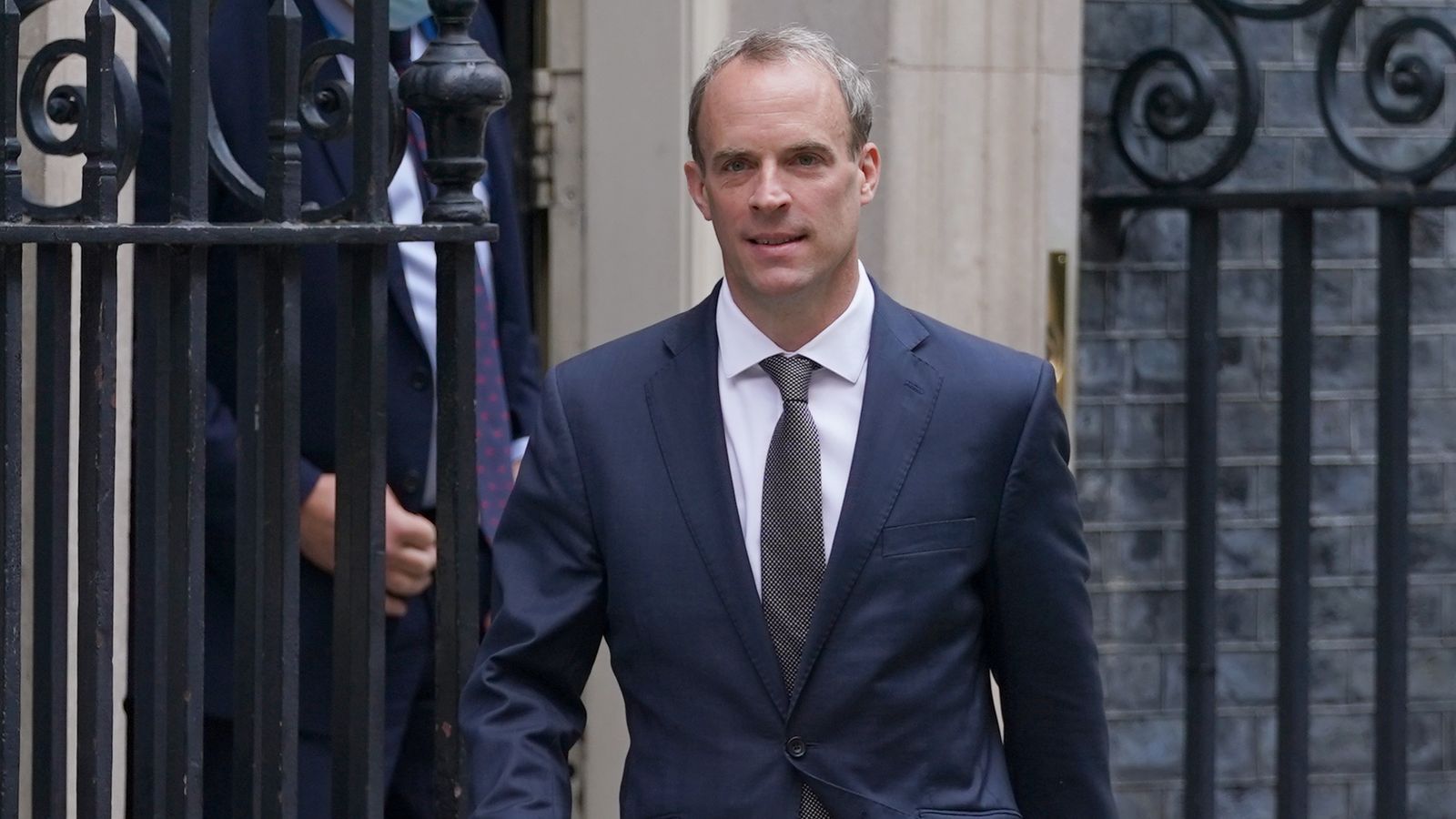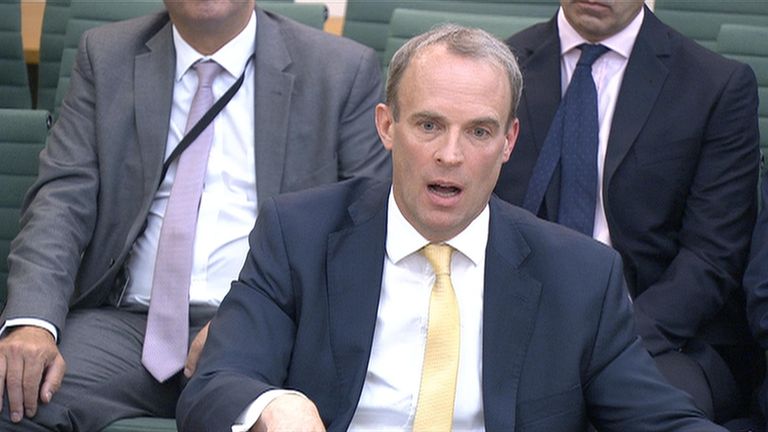Dominic Raab’s select committee grilling served many functions.
It allowed some MPs to performatively beat up the foreign secretary over his holiday for the purposes of Twitter and Facebook clicks. It allowed others to press individual and tragic cases about Afghans left behind to try to get them out.
It poured over whether it was wise to allow different Whitehall departments to oversee different types of Afghan evacuee. It shed light on intelligence failings – the “central assessment” was that Kabul would not fall this year – but allowed Mr Raab to highlight the judgement comes from a body independent of ministers and was shared by NATO allies.
It is still unclear whether the UK end was beset by problems of raw intelligence, the analysis by officials or the politicians’ interpretation.
However the reason the Afghanistan issue really matters, beyond the timeline of who did what when, is because it speaks to a big unknown – what does Global Britain, post Brexit and now post the US role as the world’s policeman – actually mean.
Gathered together, Mr Raab’s thoughts were revealing and an important statement – he rejected the comparison with the Suez crisis made by Tory committee chairman Tom Tugendhat, who referred to the 1956 debacle where Britain’s footprint in the world shrunk.
However Mr Raab offered clues as to his own views.
He said that it was clear that no coalition could have been formed to keep Kabul airport open without the US, something Defence Secretary Ben Wallace had wanted to try.
More importantly Mr Raab also appeared to reject the theory and practice of liberal interventionism.
He said there was a “bigger question around nation building” – adding he was “not saying we shouldn’t want to promote liberal democracy but reconciling ends with means (is important)”.
He concluded: “As we look at the 20 year period, it’s an important question to ask ourselves.”
You can hear the cogs grinding in Whitehall at such a dramatic change.
At points successive prime ministers have talked up the idealism of nation building. Helping the people of Afghanistan has been the implicit and explicit goal of UK policy there ever since the assassination of Osama bin Laden.
It was barely five years ago when another foreign secretary championed the theory of Afghan intervention vehemently and with certainty.
Follow the Daily podcast on Apple Podcasts, Google Podcasts, Spotify, Spreaker
In December 2016 they said: “In sticking up for a liberal international order in the confusion and discord of the early 21st century, I believe this country is overwhelmingly a force for the good with the potential to do even more and we should not be nervous of saying so.”
A world away from today. Yet that foreign secretary was Boris Johnson.

